Sommaire
Product recalls: legislation gets things right
On Tuesday, Le Parisien published an article entitled "Multiplication des scandales alimentaires : que peut-on encore manger sans craindre la contamination ?" (Increasing number of food scandals: what can you still eat without fear of contamination?), discussing massive product recalls and growing consumer concern about frequent food scandals, despite tighter health safety controls. This is an opportunity to use Follaw.sv, our freepublic affairs tool, to see the product recalls carried out and announced via Twitter.
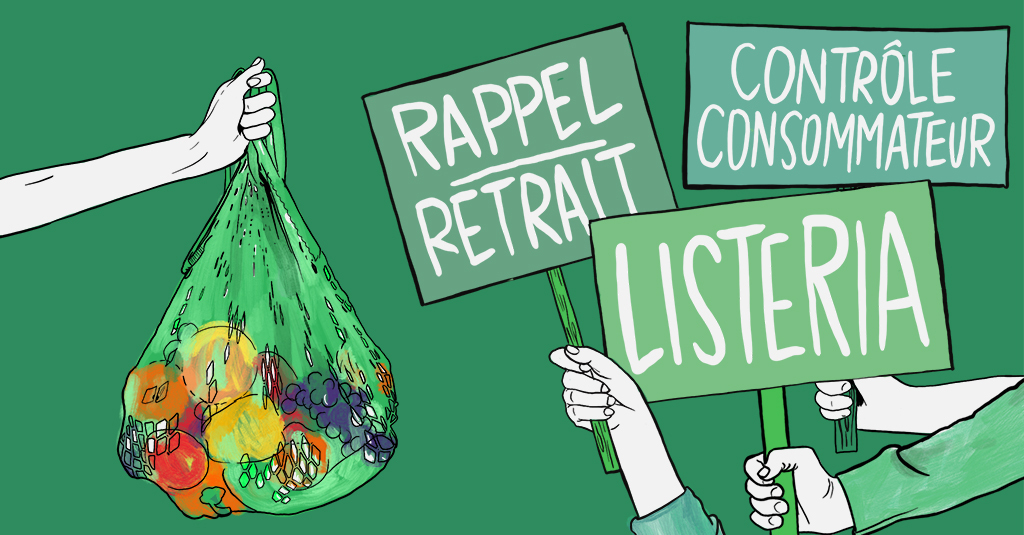
Conclusions
t is normal that there is no political reason
All the issues are relatively well known. So there are no emerging issues in product recalls. The front-page article in Le Parisien is therefore a media phenomenon, but not a substantive one. Volumes are the same from one year to the next, no politician has taken up this phenomenon, and there are no more than 173 stakeholders talking about the subject. In short, this subject should never have been on the front page, and is based on very little.
Some sectors are much more exposed than others (childcare, airlines, cars, etc.)
We have long since moved into a risk-based society, so it's normal to see risky sectors (cars, airlines, food, children) over-representedin product recalls. The food sector is much more affected than all the others by their history. They have therefore carved out their industry with more specific professions (quality inspectors, crisis management, etc.) and much more serious risk management processes than other companies.
The system works well
It's funny how well the alignment of interests works: publications don't always (or even very rarely) directly name the brands concerned. This approach protects the reputation of the retailers, especially as it is clear from the communication that the responsibility often lies with the producer rather than the retailer. By not specifically mentioning a player, we reach a wider audience, because consumers are not limited to the customers of a single brand. What's more, by playing on word-of-mouth, we can maximise the spread of information via various channels. The local press, although highly visible, doesn't always reach all the people concerned, but publications can also capture the attention of other brands, widening the audience still further.
What's more, in the end, companies may be afraid of the recall mechanism, even though it is becoming a process and, in the end, almost a normality that preserves and protects the distributor.
The visibility of consequences is worth more than the origin of things
At the end of the day, it's the consequences of the recall or the problem that count, rather than the origins themselves. If there is a death in a food, that will always have more impact than 1,000 product recalls. What's more, the system shows that not only are there media publications, recalls and the like every day. But these recalls concern errors at the margin on things that are relatively well identified. So there's no reason to sound the alarm about a case involving eggs. In the end, to quote a well-known saying: the tree does not make the forest, but the death of a tree should not be neglected on pain of losing the forest.
The right reflexes
In reality, visibility of the effects is more important than visibility of the causes. It is important to :
- Move quickly. The quicker the reaction, the fewer people will be affected, so it's logical that the impact will also be reduced.
- Clarity. We need to get to the heart of the matter: which product in which shop, and how to be 100% sure that it's right for you.
- Make it worthwhile: people often tend to underestimate the risks and believe that they will never happen to them. In exchange for a refund or something else, this reduces the difficulty of the action.
- Ensure a multi-channel strategy. In the end, as with the state in a crisis situation, you have to make sure you multiply the points of contact. (Traditional media, Consos reminders, SMS, Emailing, CP, Point of sale displays)
Introduction
Context
While serious food poisoning has fallen sharply since the 1950s, the risks associated with chronic exposure to additives, heavy metals and other chemical residues are giving cause for concern. This is due to the increasingly precise quality of analyses, and therefore to substances whose impact we do not always have the necessary hindsight to assess.
Reminder of legislation
The legislation is mainly set out in the Consumer Code, the European Regulation and the General Product Safety Regulation. The obligation concerns when a product presents a danger to the health or safety of consumers, manufacturers, distributors or importers have the obligation to withdraw the products concerned from the market and, if necessary, to inform consumers by means of a recall. The procedure to follow is :
- A hazard is detected. The danger may be caused by the company, the health authorities or consumer reports.
- The authorities must be notified.
- Recall and withdrawal: the product must be withdrawn from points of sale and a recall must be organised. There is an obligation for public consumption (press, social networks, CP, etc.). Communication must include the nature of the danger, the product concerned (batch number or date of manufacture) and the steps to be taken to obtain a refund or exchange.
From 2021, there will be a new government platform called Rappel Conso , which will centralise all information on product recalls. It will list the player involved, the product and the reason for the recall.
Analysis of publications about product recalls
To see how these reminders were communicated, we isolated a query semantically and looked at 1 year's worth of the Follaw.sv corpus to analyse what it was about and who was saying it.
The who
The players involved in our panel show directly that we are dealing with a subject that is of little importance to everyone. Some players are more present than others (health & territories), while in general, product recalls have no traction, except at local level.
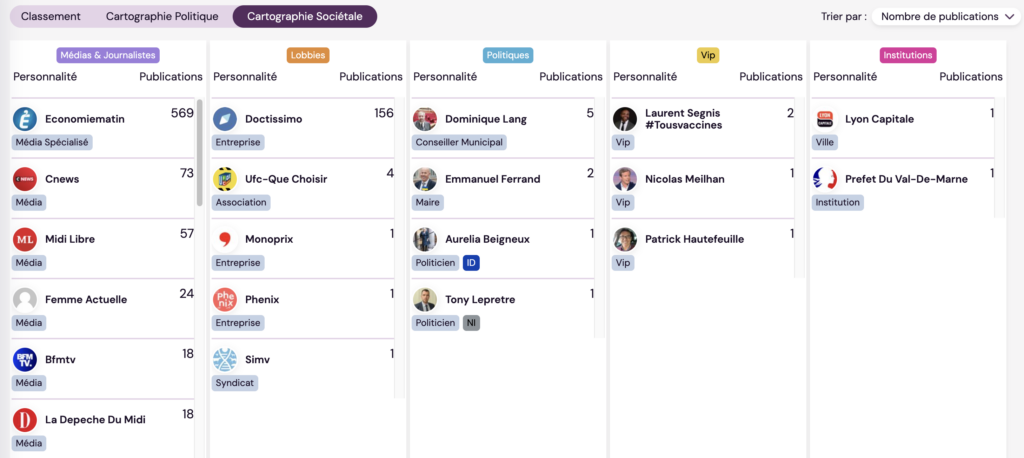
This is even more obvious when you take the same players and sort them by number of impressions. Those who publish the most are the least visible.... We need national traction.
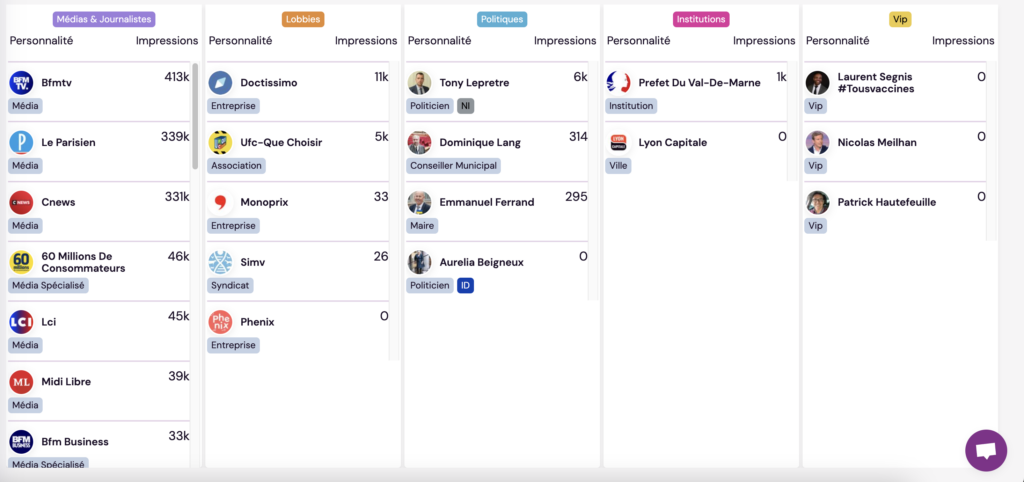
And for good reason, politicians were almost entirely absent from the speeches. Apart from vehicle recalls over faulty airbags at Stellantis, no amendments or questions were asked. The key words will be more about additives or other items relating to food safety. Even on social networks, this only gave rise to 9 policy publications.
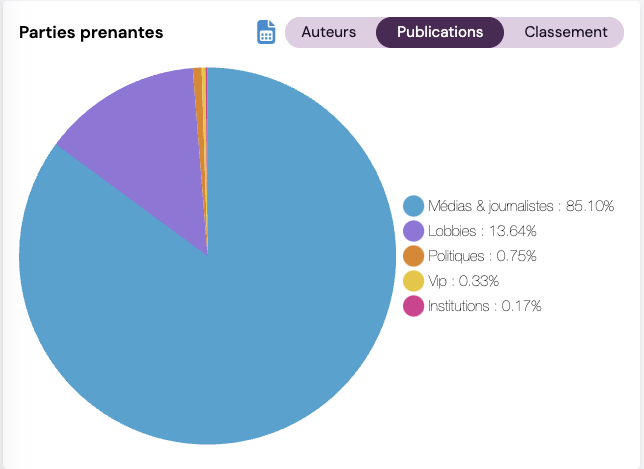
There are only the media and a few lobbies. Nothing from civil parties or experts. And very few in terms of overall volume... Not a single player is speaking out about their own recalls on social networks or in appeals (on the Follaw panel).
The what
There is a certain 'gentleman's agreement' that means that publications on social networks do not mention the actor concerned. This is in everyone's interest:
- The main actor (the salesman) is not named. His reputation is diminished. And let's face it, most of the time it's the producer who's being blamed rather than the retailer. This leads to a situation where many publications include... all the players in retail.
- Not naming a player benefits everyone. If you're not an Auchan customer, you won't see the product concerned. However, sometimes batches are sold to different players, so this is not in the public interest. What's more, given the lack of visibility, even the slightest word-of-mouth is beneficial, so the more communication vectors there are, the better.
- The publications are mainly carried out by the local press, which has a high profile in the shops concerned. However, this is not enough to reach people.
- Mentions also attract other service providers (car brands such as Tesla, Porsche or Stellantis).
Here, only the top 10 are relatively evenly distributed due to the systemic nature of the issues:
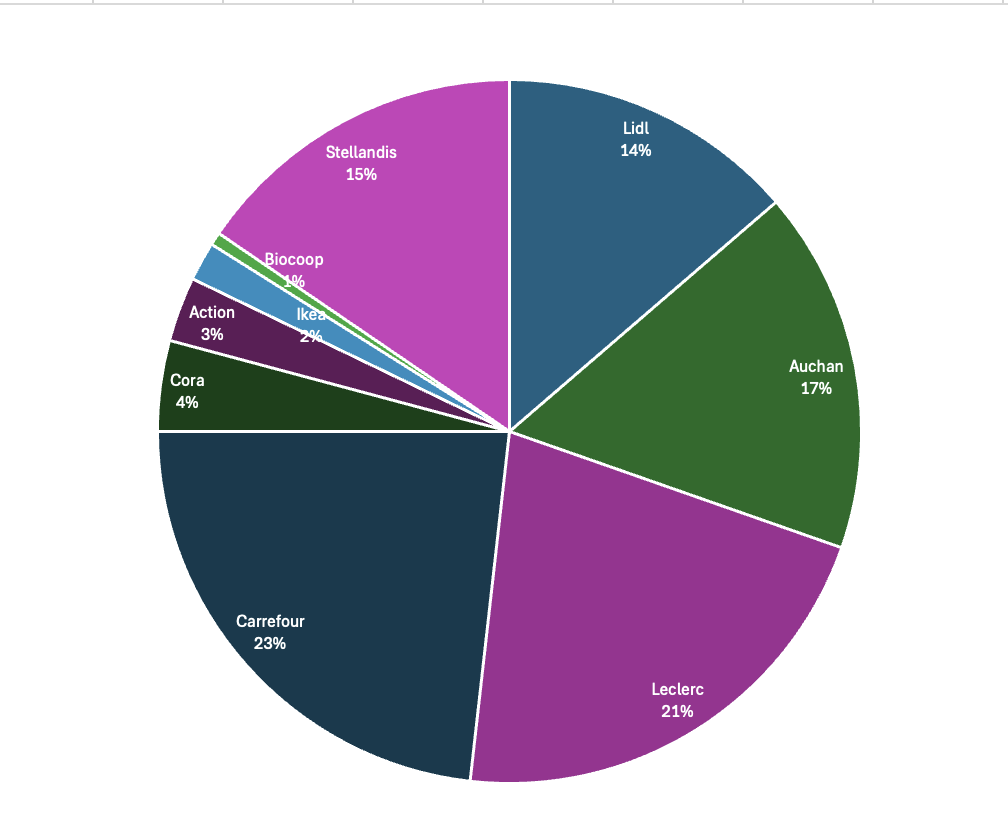
As far as products are concerned, it's mainly the same products that are being targeted, namely an overabundance of food products:
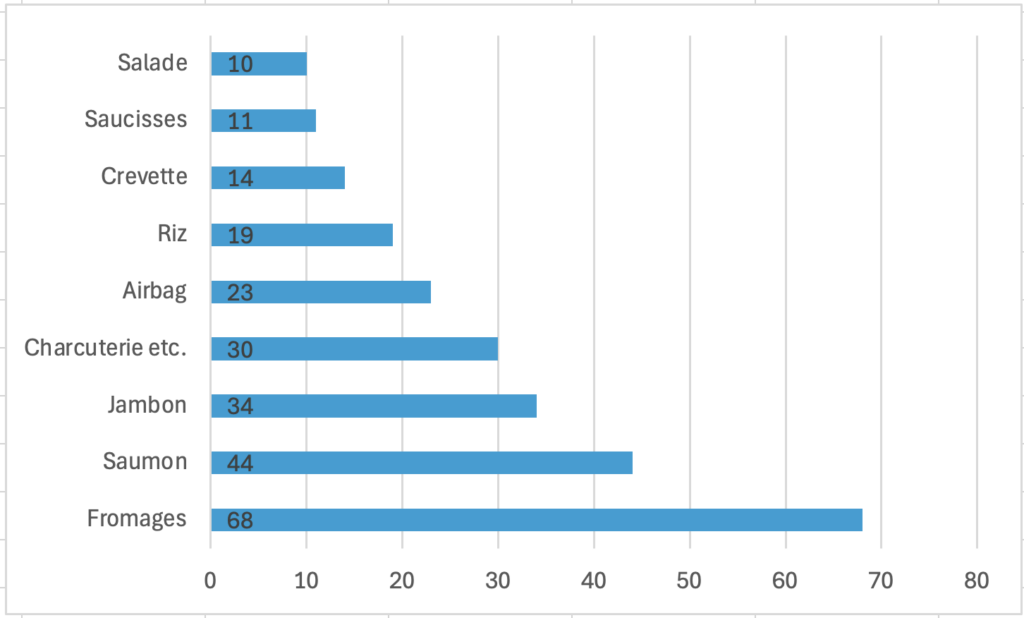
It has to be said that, for the most part, the products are always the same, with the same combination of problems. It's quite systemic. Salmon, particularly smoked salmon, and cheeses are the 'blockbusters' of product recalls, along with charcuterie. We have even distinguished between sausages and ham, but otherwise the two groups come second.
Otherwise, the reasons for recalls are sometimes bizarre: larvae, arsenic, 'too many pesticides', pieces of wood, foreign bodies and so on. However, the reasons are generally always the same:
- Plastic
- Salmonella
- Listeria
Outside this top 3 (social networks in a panel, it should be remembered) there are ultimately very few things.
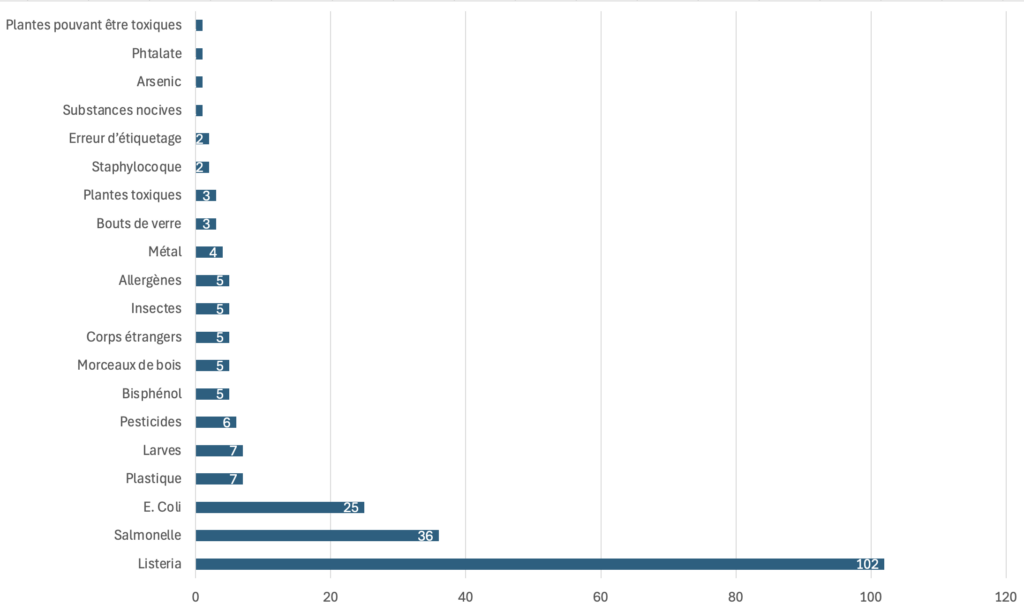
The right strategy
In reality, visibility of the effects is more important than visibility of the causes. It is important to :
- Move quickly. The quicker the reaction, the fewer people will be affected, so it's logical that the impact will also be reduced.
- Clarity. We need to get to the heart of the matter: which product in which shop, and how to be 100% sure that it's right for you.
- Taking an interest. People often tend to underestimate risks and believe that they will never happen to them. In exchange for a refund or something else, this reduces the difficulty of the action.
- Ensure a multi-channel strategy. In the end, as with the state in a crisis situation, you have to make sure you multiply the points of contact. (Traditional media, Consos reminders, SMS, Emailing, CP, Point of sale displays)



